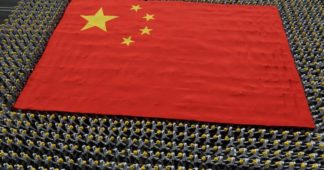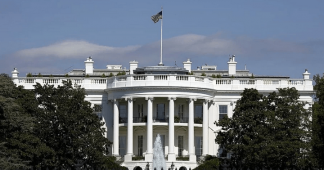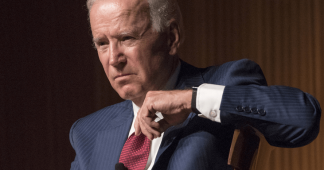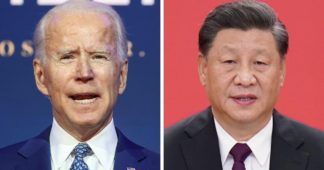By Anuradha Chenoy*
Major shifts in the US economic and industrial strategy have been announced in a speech by the US National Security Advisor Jake Sullivan, a key member of the Biden team. The fact that a national security advisor talks economic strategy indicates that US economic policy will be dominated by geo-strategic rather than economic considerations.
The national security advisor (NSA) affirms that the US is stepping back from globalization and neoliberal policies that have been at the core of US economic practice since the 1990s. [i] He admits that neoliberalism has failed the US, whilst China is on fast track of catching up and even overtaking, which the US finds intolerable.
Sullivan says that the reason for rejecting the three decade old policies termed the Washington Consensus are because of the failure of globalization and privatization; the challenges from China; challenges from climate change and from inequality. The NSA says that the consequence of the US neoliberal trajectory are that in America (i) the industrial base has been hollowed out. (ii) Public investment have declined because of the emphasis on de-regulation, privatization and trade liberalization. (iii) The faith in the dogma that ‘markets will lead growth’ in fact led to the opposite. There was an over-emphasis on financial sectors while the ‘real economy’ like semi-conductors and infrastructure atrophied. (iv) The philosophy of economic integration that is globalization, led to ‘a large non-market economy (sic China) had been integrated into the international economic order’. In other words the NSA says, the US suffered deeply on account of its policies of globalization and financialization whilst China (and others gained).
The US national security establishment now argues that ‘trickle down economics’ has been a disaster that has led to ‘corporate concentration’ and “active measures to undermine the labor movement that initially built the American middle class.”[ii] The NSA talks of planning an industrial policy that was earlier rejected in the US and must now return. Climate is the add on and the blame is on China and the Republican Party.
Many economists like Joseph Stiglitz, Peter Gowan, Prabhat Patnaik, Jayati Ghosh C,P Chandrashekar, Jomo Sundaram, Bello et al warned exactly of this outcome of neoliberalism, but the so called Washington Consensus marginalized their voices. These neoliberal policies were forced on much of the Global South through the World Bank and the IMF conditionalities, causing inequality, debt and harm in many countries.
The American NSA in this ‘New Washington Consensus’ now picks a few notes from the much maligned critics of neoliberal economics to suggest an alternative. He says that President Biden wants to build capacity, resilience, be inclusive, focus on public goods like a digital infrastructure and clean energy. So there will be investment in these sectors to build a techno-industrial base.
Of course China is the focus as US Treasury Secretary Janet Yellen’s policies also prioritize national security and export controls over economics. She advocates trade policy of ‘friend shoring’ and ‘near shoring’ which basically means that ‘trade follow friends’- a slight variation of the colonial policy of ‘trade follows flag’. So as usual, the ‘with us or against us’ principal will follow as foreign and economic policies are merged. The US will practice stricter export controls on technology, which might put off the emerging economies.
Yellen talks in paradoxes on China, proposes both engagement and disengagement, of ‘decoupling’ that can de-stabilize and be disastrous, so better to de-risk by telling China to play by the US promoted rule based order. But China has rejected the rule based order.
This ‘New Washington Consensus’ differs from the Old Washington Consensus in three ways. First it firmly brings geopolitics into economic strategy which the Old Consensus did not. The time of the Old Washington Consensus -the 1990s was a period of Soviet collapse, China still ‘catching up’ and US could practice supremacy. The US wants to maintain this old status.
Second, unlike the old strategy, China has gone from favored partner to bitter rival. US recognized that trends were that “by 2014 giving way to a fundamentally different situation of great power competition from China and Russia…” which challenge US hegemony.[iii] So the US policy is to harm Russia and contain China as part of its hybrid strategy.
Third, the US was able to sell the neoliberal globalization agenda because there appeared no alternative to US markets and strategic capabilities. But currently much of the Global South is able to see alternatives from various sources especially from China, Russia, but also from India, Brazil, South Africa and regional organizations all of whom have provided development assistance and enable trade and value chains outside those of the West.
The new US economic policy designed to support the American middle class is based on militarized and weaponized security which continues to bolster their ‘forever wars’. The priority goes to those sectors of the economy that promote war and military capabilities as opposed to those that can bolster the middle class. Why else this merger?
The ‘New Washington Consensus’ is not really new. The role and influence of the transnational corporations, especially the military industrial complex that drives both the economics and foreign policy of the US remains untouched. The lack of corporate accountability and unregulated corporate policies that link them to the political class de-prioritize the needs for social justice and finance to rebuild health care, education or US cities.
Further there is no consensus for this proposed doctrine. Neither House in the US has discussed it. There is likely to be no consensus from several allies like France- that have already voiced that they would not like to be caught in a US-China trade war.
Geopolitically and geoeconomically speaking the majority of countries worldwide search for strategic autonomy, movements against militarization are growing. The US middle class appears alienated with the political squabbling. How can Washington, obsessed with weakening Russia, out-competing and isolating China, retaining American hegemony marry a neo-conservative foreign policy with a dream of a liberal economy? This policy will not bring back US unipolarity as it envisages.
[i] Jake Sullivan, “Remarks by National Security Advisor Jake Sullivan on Renewing American Economic Leadership at the Brookings Institution.” The White House, April 27, 2023, at: https://www.whitehouse.gov/briefing-room/speeches-remarks/2023/04/27/remarks-by-national-security-advisor-jake-sullivan-on-renewing-american-economic-leadership-at-the-brookings-institution/
[ii] Sullivan above.
[iii] Congressional Research Service, (2021) Renewed Great Power Competition: Implications for Defence- Issues for the Congress. December 2021. At: https://s3.documentcloud.org/documents/21170190/renewed-great-power-competition-implications-for-defense-issues-for-congress-dec-21-2021.pdf accessed 16 March 2022)
We remind our readers that publication of articles on our site does not mean that we agree with what is written. Our policy is to publish anything which we consider of interest, so as to assist our readers in forming their opinions. Sometimes we even publish articles with which we totally disagree, since we believe it is important for our readers to be informed on as wide a spectrum of views as possible.











